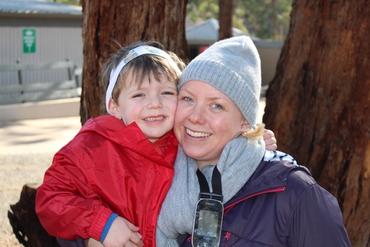Best Practices in Family-Centered Early Intervention.
Family- Centered Early Intervention encourages active and enjoyable engagement to promote playful communicative interactions, family well-being and confidence in parenting and promoting your child's development.

What is this paper about?
This paper outlines the 10 principles that family-centred early intervention (FCEI) with children who are deaf or hard of hearing. Each principle comes with a list of ‘program and provider behaviours’ describing the practical application of the principle, and is followed by a list of supporting resources and evidence.
What are the principles about?
- Timely and equitable access to services.
- Focus on service providers fostering working relationship with families.
- Provider qualifications and importance of team work.
- Monitoring progress and program review.
What were the key findings?
- As well as being based on the best available research and validated practices, FCEI also respects family differences and choices.
- Professionals collaborate with families, recognise their strengths and skills, and work with their values, goals, and aspirations as part of intervention services.
- Active and enjoyable engagement are at the heart of FCEI. It promotes playful, communicative interactions and enjoyment of parenting roles; family wellbeing; and confidence in parenting and promoting the child’s development.
Where can I read more about this paper?
Best Practices in family centered early intervention for children who are deaf or hard of hearing: An international consensus statement
Printable 359 KB PDF



